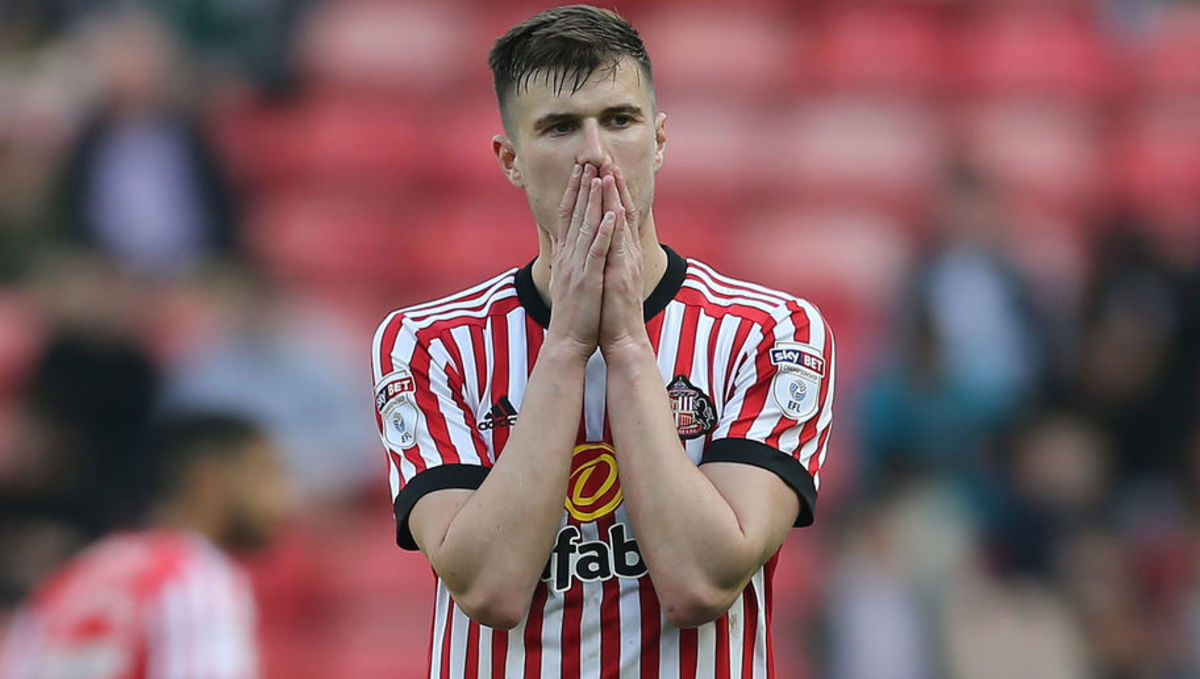FanView: What Sunderland Must Address to Emulate the Rokermen of 1988 Following Relegation

April 21 2018, similarly to May 17 1987, will live long in the memory of Sunderland supporters, with the once respected north east footballing institution reduced to nothing more than a shell of its former self; encasing only apathy and destitution as the looming demotion to the third tier of English football was finally confirmed.
A fan-spattered Stadium of Light, housing those who for 80 minutes had provided an underserved chorus of support, was left in disbelief as the true extent settled in. Liam Boyce's 92nd-minute winner, which followed up Darren Bent's villainous hand in matters, was the final nail; relegation to the third tier was confirmed for only the second time in the Black Cats' 139-year history.
But as with any disaster, it is the recovery that is more defining than the original failure. The next 12 months will decide whether Sunderland are indeed the basket case to which they have been portrayed, or made of similar ilk to the Rokermen who inspired years of relative success 31 years ago.
Clear Out & Regroup
Firstly, however, even if Ellis Short remains at the helm as the lads prepare to embark on the unknown of third tier football next season, there must be a collective and clinically executed plan to remove the dead weight within the squad.
There are a dozen players within Chris Coleman's contingent whose contracts expire during the summer; with seven of those loanees. However, alongside the 12, the likes of Lamine Kone, Jack Rodwell, Aiden McGeady and Bryan Oviedo must all, or at least attempt to be, moved on - with the over £5.5m drop in TV revenue - an over £80m decrease to that of the Premier League - set to further worsen the club's financial problems as the parachute payments again lessen.
But it is not just adding to the squad for numbers' sake that will catalyse Sunderland into becoming a reliable force, as was discovered this campaign. A more systematic approach must be taken in the transfer market to provide both balance and harmony to the squad, with in-depth observations of those who have found continuous success; the likes of Wigan Athletic, critical.
Chris Coleman
But with the hopeful rebuild must come consistency, commitment and longevity; three words that have been dissociated with the Wearsiders since the days of Peter Reid. Although, a growing section of support argue Coleman is not the right man to take the club back to where history would suggest it belongs.
Phil Smith from the Sunderland Echo recently eluded to and drew comparison between Martin O'Neill's time at the side which he supported as a child to that of today's reign; the common theme being a romance with a footballing outfit, the region and everything that comes with it.
O'Neill's tenure, admittedly, came to a crashing halt and he was left disillusioned with his once boyhood infatuation. However, although Coleman shows the same symptoms of adoration as one of his many predecessors, this love is newly founded, manufactured during a time of woe in the city.
The Welshman's commitment to the cause during a period when others have turned their backs should not be underestimated, and while disgruntlement from select supporters towards the optimist is founded, a genuine understanding of a football club in need, again, is not something that has been seen all too often in the Stadium of Light dugout.
Strength in Unity
But undoubtedly, the most prominent issue to overcome on Wearside is the currently fractured nature of both the club and its followers. Short's reign in recent years has left it clear what action must be taken, although supporters have very little say in who oversees the grand picture.
But should the American business tycoon finally offload his problem child ahead of next season, communication, in all aspects, must be both increased and improved. Coleman regularly refers to the fact he has never held a conversation with his 57-year-old chairman, despite being the one attempting to steer the somewhat sunken ship until its last. And as with any business, a lack of dialogue spells only danger.
However, attempts also must be made to rekindle the once harmonious relationship between Sunderland and its supporters. For a time, the Black Cats could pride themselves on their football club being the heartbeat of a city, but as its demise in league stature has come to fruition, also has a disconnect between the once loving bond.
Wearside has seen limited success in recent times, but the loyalty of the support; who continue to turn up in sizeable numbers despite witnessing just five home wins in two years, has always been something to instil pride.
However, without it, which is increasingly the case as Short's ownership rumbles on, Sunderland's identity will continue to diminish. And despite the seemingly never ending embarrassment of the club's off-field decisions, or even back-to-back relegations, nothing is more upsetting than forgetting who we are.







